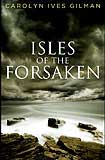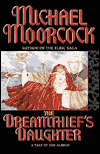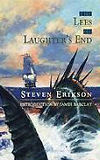
Isles of the Forsaken, by Carolyn Ives Gilman
Book Review by Michael D. Griffiths
Have you read this book?
Isles of the Forsaken, by Carolyn Ives Gilman is another fine
publication from Chizine, which I have to say is becoming one of my
favorite publishing houses. There books never let my down and cease to
amaze me. I have read close to ten of their titles now, and have enjoyed
every one.
That being said, Isles of the Forsaken is a strong novel. I had never heard of Gilman, but she is certainly a writer that can deliver a complex plot, which in this case is set in a unique world of many islands. Different races must live with each other after the Inning take control and colonialize the last of the free isles. The Torna were earlier victims of this colonialization and have forsaken much of their own native culture in order to raise amount the ranks of the conquerors. The Adaina are a spiritual people, closer to nature and mystic traditions. Their way of life is at the brick of destruction. The Lashnura are the grey people, the healers and allies to the Adaina. Their healing takes on the perverse quality of self-mutilation for to heal others they must slice into themselves.
Into the complex world step many people that could shift the balance and allow the Adaina a chance to survive, as they have done for centuries, or if things good wrong, they could become little better than serfs. Harg has been away from the Adaina fighting as an officer in Inning wars. He returns home to find an Inning presence bullying his people and is introduced to Nathaway an Inning that feels Law solves all the world's ills. A young and quite beautiful Lashnura woman, named Spaeth finds herself abandoned by her mentor and soon is sucked into conflicts that quickly head toward rebellion.
I cannot say much more without ruining the plot, which is something I would hate to do with a book that takes such a detailed approach to the heightening of drama. I will say that the book contains action as well as clever plotting. Power is gained as much with alliances and discussions behind the scenes as with sword points. The characters are believable and tend to avoid falling into simple fantasy stereotypes. The twists of the plot are hard to guess, which is always a good thing.
Downsides of this novel could include that the reader is thrust into this world so quickly that the first twenty pages are so leave us guessing at what is happening and trying to fill in the gaps ourselves. Still, this can be better than slowing down the book to over explain everything as well. I also might have liked to see more plotting from the main characters mentioned above. Each one tended to be batted around and acted upon by various figures, but they could have stepped up to become more involved in the plotting instead of being its victim.
Iles of the Forsaken is a strong first book in what promises to be a series. I will look forward to reading more from Gilman and intend to follow this series. Gilman leaves the reader wishing they already had the second book in their hands and anxious to see how Harg's gambit will play out.
That being said, Isles of the Forsaken is a strong novel. I had never heard of Gilman, but she is certainly a writer that can deliver a complex plot, which in this case is set in a unique world of many islands. Different races must live with each other after the Inning take control and colonialize the last of the free isles. The Torna were earlier victims of this colonialization and have forsaken much of their own native culture in order to raise amount the ranks of the conquerors. The Adaina are a spiritual people, closer to nature and mystic traditions. Their way of life is at the brick of destruction. The Lashnura are the grey people, the healers and allies to the Adaina. Their healing takes on the perverse quality of self-mutilation for to heal others they must slice into themselves.
Into the complex world step many people that could shift the balance and allow the Adaina a chance to survive, as they have done for centuries, or if things good wrong, they could become little better than serfs. Harg has been away from the Adaina fighting as an officer in Inning wars. He returns home to find an Inning presence bullying his people and is introduced to Nathaway an Inning that feels Law solves all the world's ills. A young and quite beautiful Lashnura woman, named Spaeth finds herself abandoned by her mentor and soon is sucked into conflicts that quickly head toward rebellion.
I cannot say much more without ruining the plot, which is something I would hate to do with a book that takes such a detailed approach to the heightening of drama. I will say that the book contains action as well as clever plotting. Power is gained as much with alliances and discussions behind the scenes as with sword points. The characters are believable and tend to avoid falling into simple fantasy stereotypes. The twists of the plot are hard to guess, which is always a good thing.
Downsides of this novel could include that the reader is thrust into this world so quickly that the first twenty pages are so leave us guessing at what is happening and trying to fill in the gaps ourselves. Still, this can be better than slowing down the book to over explain everything as well. I also might have liked to see more plotting from the main characters mentioned above. Each one tended to be batted around and acted upon by various figures, but they could have stepped up to become more involved in the plotting instead of being its victim.
Iles of the Forsaken is a strong first book in what promises to be a series. I will look forward to reading more from Gilman and intend to follow this series. Gilman leaves the reader wishing they already had the second book in their hands and anxious to see how Harg's gambit will play out.
|
Click here to buy Isles of the Forsaken, by Carolyn Ives Gilman on Amazon
|
Isles of the Forsaken, by Carolyn Ives Gilman on Amazon

| More Books You Might Like |
Comment on Isles of the Forsaken, by Carolyn Ives Gilman
| Comments on Isles of the Forsaken, by Carolyn Ives Gilman |
| There are no comments on this book. |


